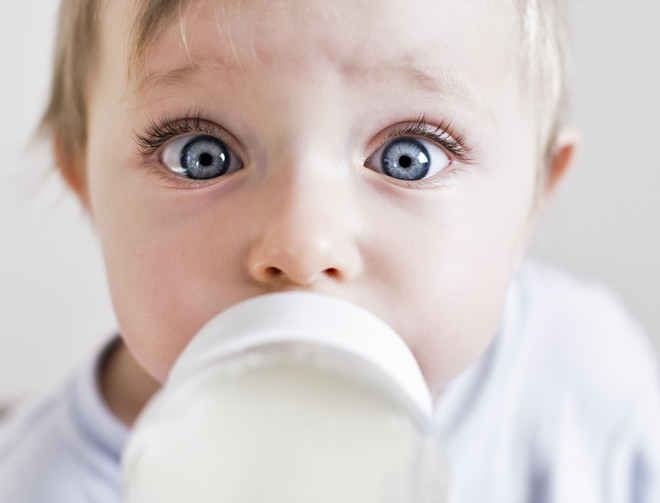The diet of the nursing mother should be tasty andvaried. And in it, of course, there is a place for sweets. They will add strength and hormones of happiness. Moreover, few people know about the syndrome of accelerated fasting, which occurs due to insufficient consumption of carbohydrates and the constant need to maintain a stable blood sugar level! Moderate consumption of sweets will help to raise the sugar, when necessary. The main thing is not to forget about the sense of proportion, to remember how sweets can affect the health of the mother and the child’s condition and what kind of sweets can be eaten.
Why sweet harms mother and baby
Firstly, there is a risk of obesity.Sweets are simple carbohydrates. They dissolve and are absorbed at a high speed. That is why they are often called fast and are accused of an excess of empty kilocalories. If you eat more than 50 grams of sweets every day, they will begin to be processed into fat, and then problems with excess weight are possible. Experts have calculated: an extra 50 grams per day during the year can lead to an increase of 14 kilograms! Secondly, the functioning of the liver worsens. Overload with simple carbohydrates can lead to fatty liver disease and disruption of the transport of cholesterol and fatty acids. Thirdly, the prerequisites for the development of diabetes, caries and allergies are formed. Fourthly, there is a deficiency of vitamin B1. Fifthly, conditions are created for the death of beneficial microflora. Excess sweets in the mother's diet are also not good for the baby. After all, excess sugar provokes: - bloating, colic, constipation, diarrhea, dysbacteriosis; - overexcitement, sleep problems; - risk of developing atopic dermatitis.
What to avoid
Mechanisms of influence of breast milk on developmentAllergies have not been fully studied. In some cases, allergens in milk cause increased sensitivity to the product in a child, while in others, on the contrary, they can have a protective effect. It is difficult to predict how the trigger will behave in a particular case. It is important to remember that sweets are not only candies, cookies, cakes, marmalade and chocolate. They are also fruits and juices! Therefore, it is better to be careful with the most common allergens. We are talking about the following products: - honey, chocolate, strawberries, wild strawberries, raspberries, citrus fruits, pineapple, pomegranate, kiwi, mango, persimmon, melon, apricot (dried apricots); - sweets containing cow protein, an allergy to which in infants is far from uncommon! A classic example is condensed milk, cakes with milk-based cream, ice cream. These products contain all the antigenic proteins of milk; - any sweets with a large number of additives. Most often, the cause of allergies are artificial flavors, colors, and preservatives.
List of permitted sweets
 Photo: GettyImages1. Marshmallow (sugar, molasses, applesauce), marmalade (cooked from fruits) and marshmallows (made from fruits and berries) are known as products that improve digestion. The pectin contained in them swells in the intestines and takes with them metal ions, radionuclides and other harmful substances. But, as we said above, sweets with a lot of additives should be avoided. And just the majority of factory marshmallows, marmalades and pastes contain aggressive flavors, stabilizers and preservatives. Therefore, the permitted sweetness can easily become harmful and dangerous. What to do? Try to buy marshmallows, marshmallow, and marmalade at eco-stores, health food stores, and farm stores. Yes, there products are somewhat more expensive, but you can calmly pamper them yourself without fear of anything. But, even buying in such a store, be sure to read the composition of the product. 2. Sweets with nuts (for example, kozinaki). They are a potential allergen. However, studies have shown that children during fetal development appear to be sensitive to allergens in nuts, if a pregnant woman eats them for more than one week. But if a woman eats nuts during the breastfeeding period, the child does not react to them. At least, in the course of the experiments, the specialists failed to identify such a connection. Most likely, allergens present in breast milk, in the case of nuts, have just a protective reaction. Dried fruits (prunes, apples), biscuits, cookies, crackers, waffles, muffins. These products are high in calories, so pay attention to their energy value and do not overuse them.
Photo: GettyImages1. Marshmallow (sugar, molasses, applesauce), marmalade (cooked from fruits) and marshmallows (made from fruits and berries) are known as products that improve digestion. The pectin contained in them swells in the intestines and takes with them metal ions, radionuclides and other harmful substances. But, as we said above, sweets with a lot of additives should be avoided. And just the majority of factory marshmallows, marmalades and pastes contain aggressive flavors, stabilizers and preservatives. Therefore, the permitted sweetness can easily become harmful and dangerous. What to do? Try to buy marshmallows, marshmallow, and marmalade at eco-stores, health food stores, and farm stores. Yes, there products are somewhat more expensive, but you can calmly pamper them yourself without fear of anything. But, even buying in such a store, be sure to read the composition of the product. 2. Sweets with nuts (for example, kozinaki). They are a potential allergen. However, studies have shown that children during fetal development appear to be sensitive to allergens in nuts, if a pregnant woman eats them for more than one week. But if a woman eats nuts during the breastfeeding period, the child does not react to them. At least, in the course of the experiments, the specialists failed to identify such a connection. Most likely, allergens present in breast milk, in the case of nuts, have just a protective reaction. Dried fruits (prunes, apples), biscuits, cookies, crackers, waffles, muffins. These products are high in calories, so pay attention to their energy value and do not overuse them. Photo: GettyImages4. Jams, preserves, marmalade.Give preference to apple or plum. It is better if you prepare them yourself, then you will know the exact composition of the product, since jams and preserves of factory production, unfortunately, like marshmallows, are “rich” in additives that you do not need during breastfeeding. Quite a lot! But be careful. When introducing a new product into the diet - kozinaki, strawberries, honey or even homemade jam, pay attention to the child's condition. Even if the skin is clean, there are no problems with stool, remember that some allergens (for example, chocolate) are characterized by a delayed type of allergic reactions.
Photo: GettyImages4. Jams, preserves, marmalade.Give preference to apple or plum. It is better if you prepare them yourself, then you will know the exact composition of the product, since jams and preserves of factory production, unfortunately, like marshmallows, are “rich” in additives that you do not need during breastfeeding. Quite a lot! But be careful. When introducing a new product into the diet - kozinaki, strawberries, honey or even homemade jam, pay attention to the child's condition. Even if the skin is clean, there are no problems with stool, remember that some allergens (for example, chocolate) are characterized by a delayed type of allergic reactions.









